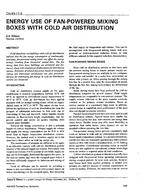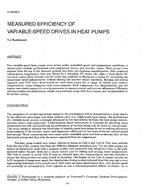Green roofs are becoming more and more popular because their thermal inertia, combined with latent heat effects, saves energy both in summer and winter and helps improve the microclimate in cities. Due to a multitude of influencing factors like moisture storage, freezing, evaporation, shading, reduced radiation absorption through the plant cover, etc., a simulation of the hygrothermal behavior of green roofs is still difficult.
In Germany, green roofs are often applied on so-called inverted roofs, where a vapor-retarding foam insulation is used above the roofing membrane in direct contact with the growth medium. Due to a more or less permanent moisture film beneath the insulation panels and a mostly moisture-saturated growth medium above, these insulation boards experience a continuous moisture accumulation during their service life. In numerous in-situ investigations of inverted green roofs, the accumulation of moisture was determined by periodical probing over a period of 10 years. Temperature and humidity sensors at several positions in the roofs served to monitor the transient behavior. Based on these tests, new models for the hygrothermal performance of inverted green roofs have been developed to simulate the moisture behavior of the foam insulation boards, depending on material properties and boundary conditions. Together with further experimental investigations, this model allows a detailed analysis of the longterm hygrothermal and energy performance of green roofs.
Citation: Thermal Performance, International Conference, 2010
Product Details
- Published:
- 2010
- Number of Pages:
- 7
- File Size:
- 1 file , 2 MB
- Product Code(s):
- D-BUILDINGSXI-105


